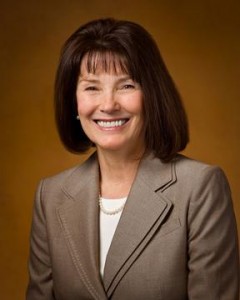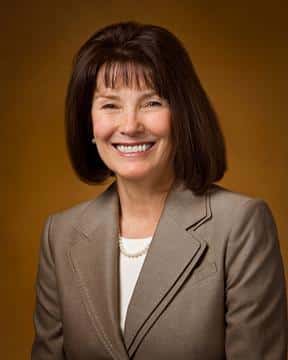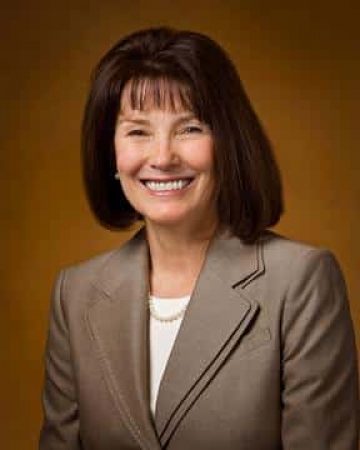I, along with three other bloggers, will be sharing our notes from various talks from the General Relief Society Broadcast tonight. Here are my notes and comments from the talk by Sister Linda S. Reeves, the new second counselor in the General Relief Society Presidency.

Reeves started with the story of Molly Lenthall, a single, sibling-less 70 year old woman in Australia. She said she felt distinctly the Spirit telling her that despite the fact that she lacks family, yet she is not alone.
She entreated, with the story of Christ’s care for Lazarus, Mary, and Martha, that we remember the compassion, empathy, love of Christ when we are weighed down by anguish, sin, adversity, and the pains of life. And that the Lord knows our thoughts and intents and knows us.
She shared personal experiences of feeling the love of the Lord with two stories from her family. First, she told a story of when husband was ill. She felt despair, anguish, anger and turned from the Lord, but eventually prayed and received comfort. And her husband made full recovery. Equally, later when they lost their 17 year old daughter, she felt the same comfort. She testified that the Lord’s comfort was there no matter the outcome.
Cast burdens on God, tell Him how you feel, cast your burden on him. Search the scriptures. Christ has taken not only our sins, but our pains and afflictions.
She concluded with Isaiah 49:16
15 Can a woman forget her sucking child, that she should not have compassion on the son of her womb? yea, they may forget, yet will I not forget thee.
16 Behold, I have graven thee upon the palms of my hands; thy walls are continually before me.
Overall, I felt that the General Relief Society Presidency has tried hard to make this broadcast Christ- and atonement-centered. They also did a good job of being inclusive of the diversity of women in the Church: acknowledging that we don’t all have nuclear families with husbands and children, but are single, childless, and even without any blood-related family at all. Reeve’s talk included a good balance of women- and men-centered scripture stories, which I think is wonderful. This is a broadcast that I would definitely recommend reading, listening to, or watching again.






8 Responses
Despite the presence of Mary and Martha in the story of Lazarus, I’ve always thought of the story as being male-centered, that it is Lazarus’ story. But tonight – as I heard the portion related by Sister Reeves – I realized that this is really Mary and Martha’s story, a female-centered story.
There Were many tender moments in this talk. My family member just experienced the loss of His family member, so being reminded of Christ weeping with those who wept, and fulfilling his own baptismal covenants to mourn with those who mourned carried heavy and healing meaning for me.
I also noticed how this speaker, and at least one more, shared stories of single sisters. I appreciate their seemingly conscious effort to remind ALL sisters that they have a place in God’s kingdom.
My only regret with her talk is that when she spoke about that first single sister, and Heavenly Father’s love for her, that she didn’t include Heavenly Mother or Heavenly Mother’s love in the discussion. But: people mostly don’t, and I can’t expect it to be perfect. 🙂
I appreciated the vulnerability Sister Reeves expressed when she admitted that during her husband’s illness, she had a crisis of faith. It is so rare for our leaders to mention such things!
Amen. It felt very important that she acknowledged that she was angry. It is so rare for us as a people (and maybe people in general) to admit that. We usually always want to paint a picture of perfect faith and hope even in hard times, but that faith and hope can be nuanced and have other elements too. It certainly makes me feel better, and like I have more permission to feel human feelings in the face of tragedy and/or life, whether those feelings be sadness, doubt, or anger.
Yes!
Yes, I appreciated her vulnerability and honesty when she talked about not being able to pray to God for a while. And I am so glad she mentioned the story of her daughter dying. Acknowledging that faith doesn’t mean that you get what you want is important.
Thanks for the write-up, TopHat!
I had one (and only one, which means I thought this was an especially well-done conference) issue with the presentation of these stories: over and over, the presidency members raised the specter of death and abandonment as a fear appeal for making and keeping temple covenants and strengthening families. Part of this is undoubtedly due to the greater availability of quotes from pioneer women, who were much more likely to experience the early death of a child or spouse than we are today. But I was much more touched by President Eyring’s talk, which touched on the trials surrounding the premature birth of a child and the support that the mother needs — admittedly, something that is personal and meaningful to me because I have found myself in the same situation. I would love to hear more about the joy we can experience through the sealing rites and the ways we can put our temple covenants into effect in the world we live in now, and less about the fear we ought to feel that we will be abandoned or alone without them.
[…] TopHat’s remarks on Linda Reeves’ talk, “You Are Not Forgotten” […]